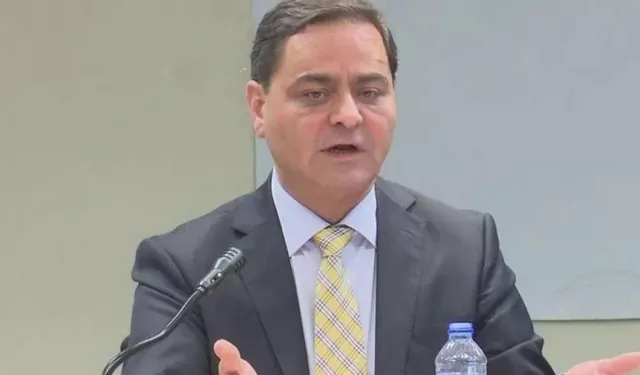Palestinian businessman Samir Hulileh said he would not assume any administrative role in Gaza outside the Palestinian Authority’s framework, stressing the need for full consensus and President Mahmoud Abbas’s explicit approval before taking any practical steps.
Hulileh, who has been floated as a potential head of Gaza’s civil administration under a post-war proposal, told Al Manassa that he firmly rejects any form of separate governance for the enclave. He reaffirmed his belief in the unity of Gaza and the West Bank as integral parts of a future Palestinian state.
On Tuesday, Israeli newspaper Yedioth Ahronoth reported that Hulileh has been in contact with multiple parties for months regarding a proposal to appoint him as Gaza governor. The report said the plan envisions an Arab League-backed figure acceptable to both Israel and the United States to oversee Gaza’s “day-after” transition. The effort is reportedly led by Israeli-Canadian lobbyist Ari Ben-Menashe.
Hulileh told Al Manassa that his nomination “was proposed through a friend with close ties to US Middle East envoy Steve Witkoff”. The initial suggestion was for him to lead the community support committee, a proposal that received no objection from Egyptian officials.
Hamas did not object to his name when it came up months ago in discussions about forming a “community support committee,” Hulileh explained, adding that Hamas had told mediators it was prepared to hand over the administration of Gaza to such a body.
Hamas has indicated it would not be part of a post-war Gaza administration, provided that the new arrangements are based on a “national consensus”.
The White House had presented Hulileh's name to regional stakeholders, and some had shown “receptiveness up to the point of welcome,” based on feedback he received, he said.
Security proposals
The plan includes deploying Arab forces, under the Arab League’s umbrella, as a temporary security measure until Palestinian police forces are ready. Hulileh described this arrangement as the “most suitable solution under current conditions,” emphasizing that “no administrative plan for Gaza can succeed without first ensuring security.”
Meanwhile, Islamic Jihad spokesperson Mohamed Al-Hajj Musa told Al Manassa that the group rejects any foreign interference in Palestinian decision-making. He warned that any forces entering Gaza—“regardless of their nationality”—would be viewed as an occupying power if their purpose was to “safeguard Israel or act as its proxy.”
Hulileh is a well-known figure in Palestinian economic and political circles. He previously served in various government roles with the PA, eventually becoming chief of staff to Palestinian Prime Minister Ahmed Qurei, and chaired the board of the Palestine Stock Exchange until March.
Mediators from Egypt, Qatar, and the United States continue to push for a ceasefire and a 60-day truce deal. The proposal includes releasing 28 Israeli captives—10 living and 18 deceased—in exchange for the entry of emergency humanitarian aid into Gaza, partial withdrawal of occupation forces, and the release of Palestinian detainees in Israeli prisons.
